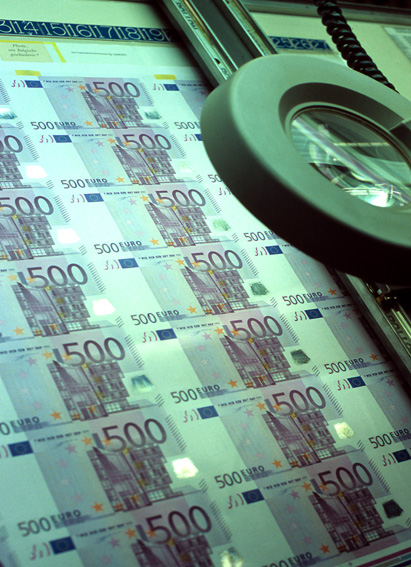Today Angela Merkel and Francois Hollande met at Reims Cathedral, to commemorate the 50th anniversary of Konrad Adenauer and Charles de Gaulle meeting there as a gesture of Franco-German reconciliation this day in 1962. For German and French eyes, a significant moment, full of momentous symbolism, and hence worth commemorating. For American eyes, apparently, not the sort of European diplomatic pageantry that attracts much notice. I even find myself a little mystified by why it was such a big deal back in the day, telling myself, “Well, of course they were going to reconcile at some point, and in certain strategic and economy terms they already had, so why the big fuss? Don’t we now see that the various agreements paving the way for the EU were much the more momentous occasions?”
Shallow reasoning, that, but easy to fall into for an American, or anyone caught up in economistic thinking. Readers of Solzhenitsyn’s “Repentance and Self-Limitation in the Life of Nations,” which dared to defend as essentially correct the common feature of ordinary speech that depicts nations as capable of guilt, repentance, and a “spiritual life,” will understand why, as will viewers moved by Nelson’s Mandela core message in the film Invictus .

Symbolism matters to nations. The scene 50 years ago:
“De Gaulle exploited the historical resonance of this beautiful French city to the fullest, particularly in the high mass which Adenauer, as a Catholic, attended with him.” A momentous handshake was made. Six months later, January 1963, having just signed a historic treaty, they again attended a mass together at Reims, and “Some observers referred to the ceremony as ‘the marriage of the two old men,” because Adenauer and de Gaulle knelt at the front of the congregration, side by side, on a prie-dieu before the altar as would a bride and bridegroom.”
A History of West Germany , Dennis L. Bark & David R. Gress. (A fine book, BTW.)
The scene today , according to the Canadian Globe and Mail:
“On Sunday, Ms. Merkel and Mr. Hollande exchanged kisses on the cheek. . . . Today’s leaders . . . acknowledged the challenges facing the shared currency as debts in smaller countries have affected the whole region and worry markets worldwide. ‘The economic union . . . appears not to be strong enough,’ Ms. Merkel said, urging Europeans to ‘complete the economic and monetary union on a political level.’ Mr. Hollande insisted that the French could keep some of their cherished national sovereignty but said the current crisis should push Europeans to speed up integration and force a ‘new start’ for European unity.”
The only reason you may have heard of this story is that some German WWI graves on French soil were desecrated yesterday, but I don’t think that’s worthy of as much note as the fact that, well, Merkel and Hollande did not attend a mass together. They posed for photos outside the cathedral, a plaque was dedicated, and they made the remarks reported above. I can’t even tell if they went into the cathedral or if anyone said a prayer, although I suspect both of those happened. (The English reports mention nothing about this, and my French-challenged partial-reads of two French-media reports revealed no mention of religious ceremonies or prayers.) So they did not, as their predecessors had, stand as political leaders for Christian-Democrat identity in the broad (extending to Gaullism) sense, nor did they kneel as representatives of their nations before the altar of Jesus.
No word yet on whether they plan to kneel tomorrow, when they will dedicate the new shrine in Brussels displaying the first Euro-note printing machine.

Well, no. No such shrine exists, and my dig isn’t even fair.
Merkel, the daughter of a Lutheran minister is fairly private about her religious beliefs, although she has said that has said that Germany and her Christian Democratic Union party must stand for the “Christian concept of humanity.” But it likely did matter in this case that Hollande is a self-described “agnostic.”
And all in all, given the now low rates of Christian belief in both nations, we must recognize that the symbolism of today’s meeting was in some sense apt, while nonetheless praying for European revivals in the future.
UPDATE: More info now. Extensive French account, and a video summary (scroll down), here . They did go into the cathedral, as I suspected, and listened to the choir perform St. John’s Passion. So there was a Christian element to the national pageantry.
